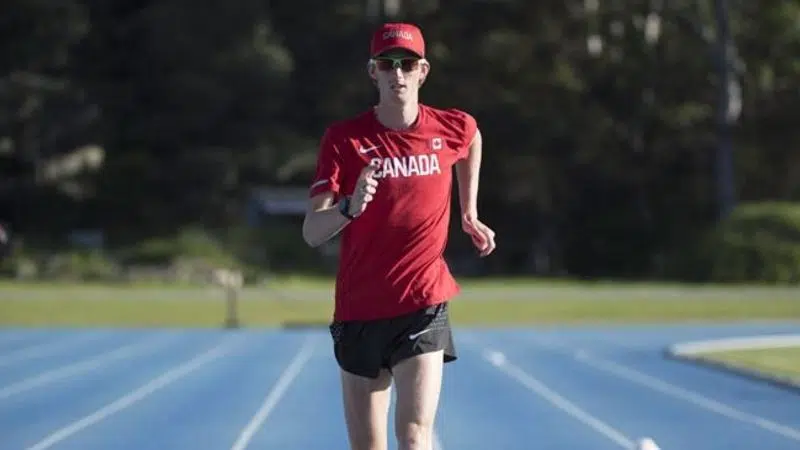
Canadian race walker Evan Dunfee ready for ‘insane’ late-night challenge
Evan Dunfee would normally be sleeping at the time he’ll be stepping up to the start line at the world track and field championships.
In an attempt to beat the sweltering heat of Doha, Qatar, any events that take place on the roads outside Khalifa International Stadium will be held in the middle of the night.
Dunfee will compete in the 50-kilometre race walk — an event that traditionally has an early-morning start time — at 11:30 p.m. on Saturday, which is his 29th birthday. He won’t arrive at the finish line until sometime after 3 a.m.
“The latest I’ve ever started a 50K is at 8 a.m. It’s insane,” Dunfee said from the Canadian team’s pre-worlds camp in Barcelona. “I’m banking on my couple of years of playing rec hockey at UBC, having games at like 1 a.m. to kind of know what it feels like to have to exercise at that time of night.”
